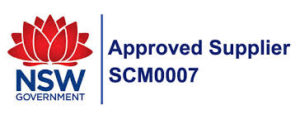[vc_row][vc_column][vc_column_text] With millions of people working from home throughout the coronavirus outbreak, research has recently identified key strategies for both organisations and their employees to safeguard mental health.
With millions of people working from home throughout the coronavirus outbreak, research has recently identified key strategies for both organisations and their employees to safeguard mental health.
Led by researchers from the University of Sydney Business School, the peer-reviewed research synthesises existing studies on how technology-driven changes at work will impact workplace mental health and employee wellbeing.
“While technology can streamline many aspects of work, its continued use with few breaks can be really draining, especially when the boundaries between work and home life are blurred,” said co-author Dr Shanta Dey from the Discipline of Work & Organisational Studies in the Business School.
The research highlights key self-care strategies including: following a regular routine that includes physical exercise; taking regular breaks; and customising notifications on various digital devices.
Published in the Australian Journal of Management, the paper reviewed over 100 studies to examine why technology is a “double-edged sword”, impacting workers and businesses in both positive and negative ways.
The paper observed that organisations could consider hiring cognitive, organisational and human factors psychologists to design and implement initiatives which promote more ‘mentally healthy’ use of technology at work.
“Organisations could also consider adopting an e-Health approach to implement prevention-focused employee wellbeing programmes,” the researchers said.
“There is a need for more training programmes to teach employees how to engage in good mental health practices, whether it is the importance of taking work breaks, trialling technology-free focused thinking sessions, or disabling unnecessary e-notifications.”
This form of an e-learning approach is becoming an increasingly attractive option to organisations as it enables training to be delivered universally across workforces in a consistent, timely and cost-effective manner.
“Online training on workplace mental health can also assist many organisations to overcome issues related to cost, availability, accessibility and other factors which may otherwise make training unviable,” the paper said.
Co-directors of the Body, Heart and Mind in Business Research Group, Associate Professors Helena Nguyen and Anya Johnson, said managers have a critical role to play in modelling health behaviour for employees, especially as many Australians start working from offices again.
“Having some level of control and actively participating in change are important protective job design features for mental health,” said Associate Professor Helena Nguyen.
“It’s important that managers and supervisors embed systems for routinely checking in on the wellbeing of their employees. This can be especially difficult without in-person contact.
“Managers’ increasing confidence to initiate conversations about mental health and wellbeing has been a silver lining of this pandemic, and will be even more critical as they navigate returning to offices.”
Associate Professor Anya Johnson added that employees need to be involved in the decision-making process around the implementation of new systems and procedures.
“Having some level of control and actively participating in change are important protective job design features for mental health. This is even more important when so many of the factors impacting people’s work in recent months has been dependent on controlling the spread of the virus,” she said.
Co-author of the paper, Professor Nicholas Glozier from the University’s Brain and Mind Centre, said: “For many people, new working patterns may challenge the daily routines that help keep our body clocks stable.”
Source: AIHS, 30 June 2020[/vc_column_text][/vc_column][/vc_row][vc_row][vc_column][vc_message css_animation=”fadeInDown”]Safety Australia Group currently have a number of online options for Mental Health Awareness Training, including a one (1) hour virtual masterclass ‘Keeping your workplace culture and psychological safety afloat during COVID19‘ delivered by Karen Maher, who is a former WHS and employment lawyer and one of Australia’s leading WHS & Culture consultant and keynote speaker.
Call or email us today to find out more information[/vc_message][/vc_column][/vc_row]

 Safety Australia Group
Safety Australia Group